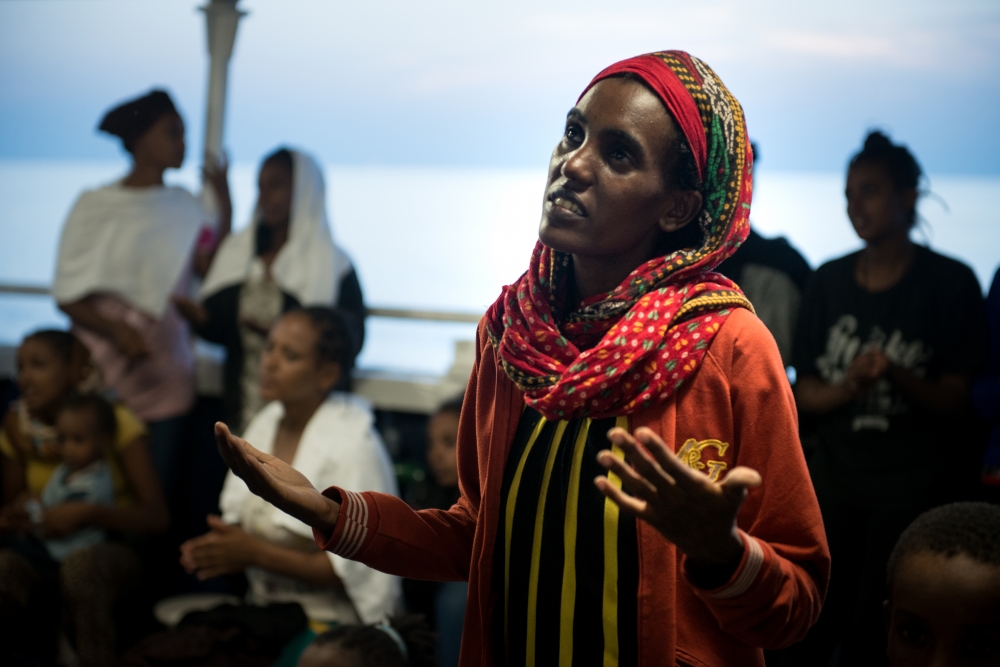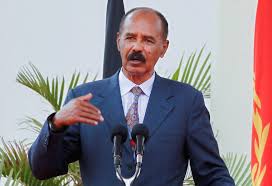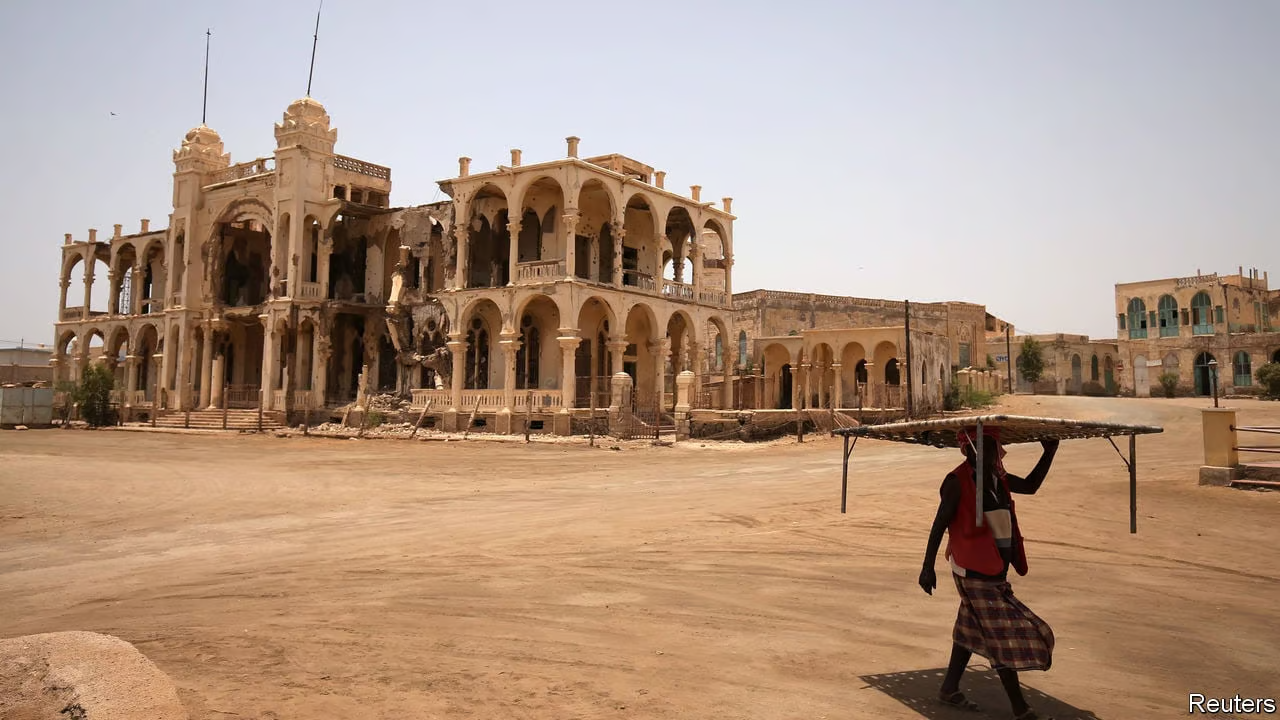The popular narrative frequently compares Eritrea to North Korea because of its similarly styled political leadership. Like Pyongyang, the administration in Asmara has adopted a policy of isolation depriving its masses of fundamental human rights. On 24th May 2024, Eritrea celebrated its 33rd Independence-day anniversary garnering criticism from various countries and organisations around the world. The day also marked 30-year anniversary of totalitarian government under the President Isaias Afewerki. The country hasn’t had a single election in more than three decades of its nationhood. This goes against the constitution promulgated under the president himself in 1997. Afwerki, once hailed as a “renaissance African leader” by the US President Bill Clinton, is now labelled as a “brutal leader”, “ruthless leader”, “dictator” and so on.
The country fought an armed war of independence for thirty long years against Ethiopian government in pursuit of a free country, however, is faced with tyranny and crimes against humanity for last three decades, under its once beloved leader Afwerki.
Religious persecution in Eritrea

Eritrea was first described as North Korea by a British-Irish Politician and David Alton, who is also a vocal advocate of religious freedom. In May 2018, during a UK Parliament session, a meeting titled ‘Religious persecution in Eritrea: A crime against humanity’ Alton described Eritrea as North-Korea for the first time. According to White Paper on Religious Freedom in North Korea 2009, “at least 345, or 5 percent, of all human rights violations in North Korea were related to religious persecution in 2008, up from 138 cases, or 3.3 percent, in 2007. Some 252, or 4.8 percent, of concerned North Koreans were involved in such persecution that year. No progress was made in the promotion of religious freedom in North Korea since the previous year. Religious oppression is ongoing with no signs of any improvement. There is a clearly increasing trend of cases of religious persecution.”
The United States Commission on International Religious Freedom (USCIRF) has recommended Eritrea as a “country of particular concern” (CPC), for its “systematic, ongoing and egregious” religious freedom abuses”. It is estimated that 2,000-3,000 people have been arrested for practicing their religious beliefs. Those imprisoned for religious reasons have been reported to be beaten, heinously tortured and forced to renounce their faith.
Media restrictions in Eritrea
‘Reporters Without Borders’ (RWB) has ranked Eritrea last in the world press freedom index in a list of 180 countries. All forms of independent media have been outlawed in Eritrea. Neither national nor foreign media outlets are permitted to operate within the country since 2001. The only media channels available are those directly controlled by the Ministry of Information, including a state news agency, a handful of publications and Eri TV. These outlets are government’s mouthpiece, they are highly regulated and are required to disseminate the government’s propaganda. In addition to this the government also restricts internet connectivity. The country’s telecom operator, EriTel operates independently without tie-ups with international telecommunication operators resulting in inability of international phones to connect to the local network. Tourists are not issued SIM cards and outgoing calls and messages are restricted. Access to internet is licensed and only few internet cafes and major hotel lobbies may offer internet access that too in low speed. Media and internet restrictions can lead to lack of access to unbiased information, hinder people’s ability to make informed decisions and understand the present socio-economic and political state of their nation. It also hinders communication among people and restricts mass mobilisation and organisation. Owing to this repute, many tourists have given a nicknamed Eritrea as “Destination of Digital Detox”.
In this highly isolated country, Radio Erena emerges a beacon of hope for Eritreans who seek information, it is an independent and apolitical radio station run by exiled journalists in Paris since 2019. However, it often falls prey to the media restriction policies of the government.
Indefinite conscription, forced labour and poverty
Eretria has hostile neighbours due to its unresolved border disputes which requires a lot of investment in the armed forces, therefore under the garb of national service and to remain on a war footing, every abled body is required to join the national army for a period of 18 months. However, with the announcement of Warsai Yekalo Development Campaign (WYDC) in 2002 the service period has been extended indefinitely sometimes years and even decades making the system worse than that of North Korea. As of 2023, the Eritrean Military had a strength of 150,000- 200,000 out of its 360,000 population. According to an Amnesty International report “the army used “coercive practices to force individuals to participate in military action in Ethiopia”, and families were forced to hand over their relatives, including children. Reports of torture and other ill-treatment and sexual violence continued in conscript camps. The Special Rapporteur reported that former women conscript of the Sawa military training camp said that camp officials carried out rape and other forms of gender-based violence against female conscripts” (women consist of 30 percent of the total conscript). Apart from gender-based violence and other atrocities the payment receive for their service is also diminutive, approximately US 30$ per month which the UN declares as population under extreme poverty. According to the UN half of the world population lives in poverty and 800 million people live in extreme poverty, UN defines those who earns US2$ per day as person living under poverty and less than US 1.25$ as under extreme poverty. The national service has not only left Eritreans poor, but it has also destroyed social safety system in the society.
Mass detention and exodus
Eritrea is one the fastest emptying nation in the world, 4000 out of 4.5 million people flee the country every month, it is estimated that 9% of the population have already fled the country. Those who escape this nation that sits on the Horn of Africa fear the government’ indefinite conscription and detention because of which they seek asylums in the neighbouring countries as well as Europe. As of 2021, there were 580,000 Eritrean refugees and asylum seekers. Majority of refugees have cited forced indefinite conscription or national service as the principal reason for fleeing their homeland. Mass and indefinite detention also remains one of the reasons for seeking asylum. In 2013, Amnesty International reported that the government imprisoned at least 10,000 political prisoners and G-15, a group that opposed the policies of President Afewerki, postponing of elections and non-implementation of constitution. Human Rights Watch have reported that the Eritrean government has punished relatives of thousands of draft evaders as a part of an intensive forced conscription campaign.
How has Afwerki retained his power?
In 2009, UNSC had imposed huge sanctions on Eritrea for its role in providing support to armed group in Somalia, however, even after the sanctions were imposed its President did not seek any political protection from China (where he was trained) or Russia, (with whom it shares political ideology) he blocks every possible interference, perpetually isolating Eritrea from rest of the world, so that he can continue his regime.

According to “theafricareport”, Eritrea is at least a food independent country which shields him from seeking help from outsiders. There is a deep sense of mistrust among the Eritreans when it comes to outsiders as Eritrea has often been exploited by external forces through colonialism.
Compulsory conscription that further adds to lack of education among youth and blockage of external media further helps in strengthening Afwerki’s totalitarian regime. Therefore, even though the media points towards Eritrea as “dictatorship” and “North Korea-like”, for people it is only a trying and a struggling country. Their difficult past has also turned them into a resilient country further cementing President Afwerki’s regime.
Beyond parallels
In conclusion, the comparison of Eritrea to the “North Korea of Africa” underscores a troubling reality. The pervasive atmosphere of fear stemming from external threats and internal governance issues. While Eritreans endure the weight of external aggression, they are simultaneously discontent with the leadership within their borders. This analogy serves as a poignant reminder of the urgent need for transformative change. Eritreans are not resigned to stagnation rather, they are actively seeking avenues for a brighter future, one that is marked by freedom from fear and a leadership that genuinely represents their aspirations. It is evident that the desire for meaningful progress and genuine reform resonates deeply within its people, propelling them towards a future defined by hope and resilience.

